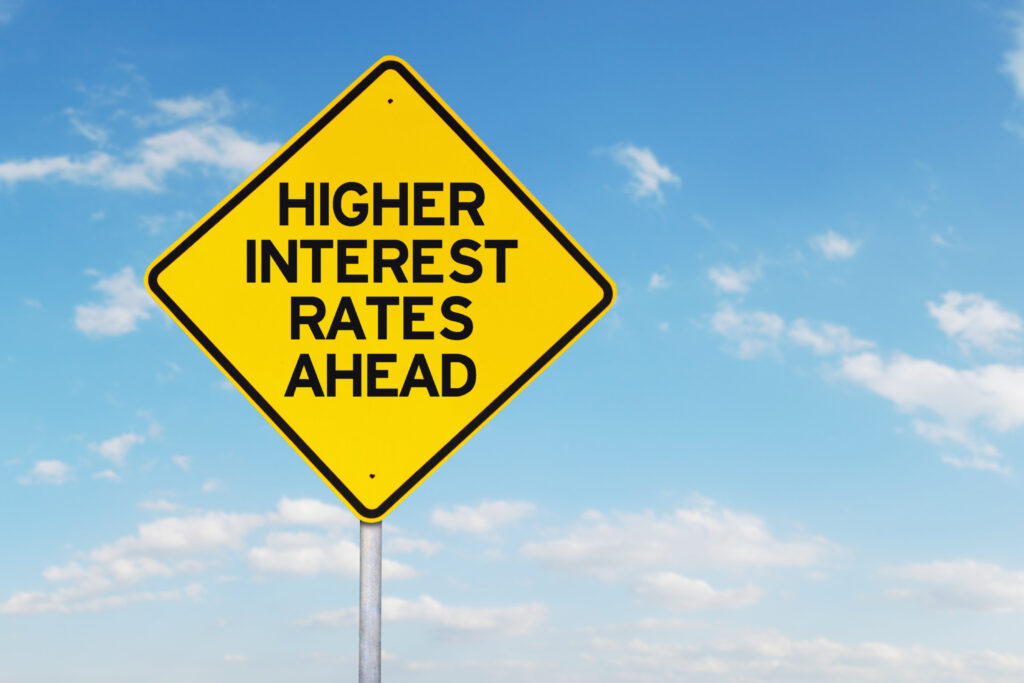UK interest rates have risen a further 0.25% as the Bank of England attempts to stem the pace of soaring prices.
In the wake of the Federal Reserve’s biggest interest rate increase in 28 years the Bank of England, rates have risen from 1% to 1.25% for the fifth consecutive time in a row, reaching their highest level in 13 years. It comes at a time when the growing cost of living, fuelled by record fuel and energy costs, is putting a strain on budgets.
Inflation, or the rate at which prices increase, is already at a 40-year high of 9%, and the Bank of England has warned that it might hit 11% later this year.
How high could UK interest rates go?
Rising energy prices are projected to push living expenses considerably higher in October, according to the Bank, although it stressed that if inflation pressures continue, it would “act forcefully”. According to Capital Economics, the Bank may be forced to boost interest rates to 3% in the future.
MORTGAGE bills are set to rise by hundreds of pounds for millions of homeowners. The latest hike by the BoE is likely to be passed on to homeowners in the form of higher interest rates on mortgages.
Mortgage expenses have already risen as a result of previous rate rises, and repayments might climb much more. According to the credit app, TotallyMoney, a 0.25% rate rise would add £30 per month on a £250,000 mortgage with a 25-year term, or £360 per year.
Borrowers will pay an additional £48 per month, or £576 per year, for a £400,000 loan.
Interactive investor’s senior personal finance expert, Myron Jobson, said: “The fifth consecutive month of rate rises in a row means that the base rate now stands at its highest level since just after the financial crash at 1.25%. “What started off as a slow and steady journey to steer inflation towards a more manageable course is starting to look a bit more stomach-churning for borrowers.
Meanwhile, some businesses anticipate that higher borrowing rates may cause customers to spend less.
“At the moment we’re not seeing it directly, but we know we are a luxury,” Gulliver’s Theme Park Resorts managing director Julie Dalton told the BBC. “Past
experience has told us when interest rates go up, we do start to suffer.” Six of the Bank’s Monetary Policy Committee’s nine members voted to raise rates to 1.25 percent, while three pushed for a higher hike to 1.5%.
According to the minutes of the Bank’s meeting, the UK GDP is expected to contract by 0.3% in April-June.
Laith Khalaf, head of investment analysis at AJ Bell, said: “The Bank of England is playing a game of slowly, slowly catchy inflation, rather than the shock and awe tactics being employed across the Atlantic.
“Markets will no doubt seize on this as a sign the Bank of England has bottled it, but an incremental strategy allows the rate-setting committee to observe more data as it comes in, and fine-tune its approach as circumstances dictate.
“No one should labour under the misapprehension that interest rate rises are going to do anything about eye-watering levels of inflation in the short term. Our inflationary problem is being driven by a supply shock to energy markets stemming from the conflict in Ukraine, and the ensuing sanctions and no number of interest rate rises will solve that problem.
“Investor interest will turn to sterling, which has been under some pressure of late, not least because of the forecast of likely tepid growth, and with a potential spat with the European Union also weighing,” said Richard Hunter, head of markets at Interactive Investor.
“Such pressure could be an ironic boost for the FTSE 100, where the majority of earnings come from overseas, thus making them more valuable in the translation back into sterling.”
All opinions and views expressed or suggested by the Digital Zeitgeist are not necessarily the same opinions and views held by or suggested by GPM-Invest plus any and all partners, affiliates, parties, or third parties of GPM-Invest. Any type of media distributed by GPM-Invest IS NOT financial advice. Please seek advice from a professional financial advisor.

